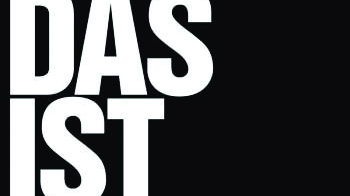Based around the original nucleus of Gabi Delgado-López and drummer Robert Görl, Deutsch-Amerikanische Freundschaft were one of a number of angular, highly innovative German groups to emerge from the kraut-punk scene to create the building blocks for later scenes such as techno and industrial. Their second album, the first album Mute records ever released was Die Kleinen Und Die Bösen, at which point they were a scratchy five-piece including guitars and synths, creating music of sinister urgency, not least on the piledriving Gewalt (Violence).
It was on their following three albums recorded as a duo, however, Alles Ist Gut, Gold Und Liebe and Für Immer, released between 1980 and 1982, that López and Górl created the muscular, cropped, brutally ironic, whiplash style which has been much imitated and drawn of for inspiration but never matched. Consisting solely of vocals, drums and synths, tracks like Der Mussolini still overwhelm you more than 35 years on with their dark, warped velocity.
They revelled in perversity; Sex Unter Wasser from Gold Und Liebe scarcely needs translating, while softwareuiphraseguid=“5c446fed-1fd9-43ab-9fb0-2545d10bd17f”>SOFTWAREmark” gingersoftwareuiphraseguid=“2e7bfc1b-05ad-4401-bda7-f34ec3639ea0” id=“0bbf8c59-4f2e-4b18-b654-5587bdf3caa8”>Ein Bisschen Krieg (A Little War) from Für Immer was their response to the West German 1982 Eurovision Song Contest winner, Nicole’s A Little Peace.
They benefitted from the timelessly superb production work of Conny Plank, a krautrock veteran, one reason they still sound immaculate. So definitive were these albums, however, that, like Kraftwerk, they eventually left themselves with little else to do. They recorded two further albums in 1986 and 2003 but this collection houses their absolutely essential work.

